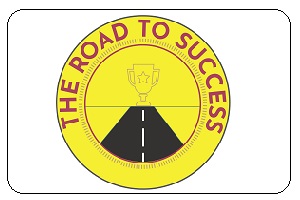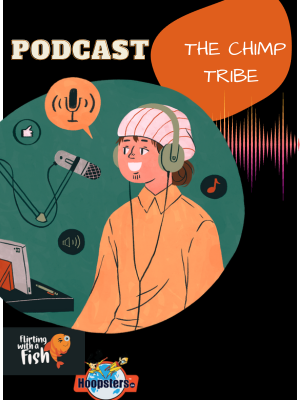
|
TO BE HAPPY, SET GOALS FOR YOURSELFsource : WWW.WHITESWANFOUNDATION.ORGBy setting realistic, attainable goals we positively influence our levels of happiness A popular idea in business start-up books is that goal-setting is crucial for financial success, and it may well be true. But more importantly, positive psychology has found that goals affect our daily happiness. Research on peak-experiences shows that people often experience joy when they attain a personal goal, whether it involves education, work, or social relations. If you are someone who has not thought of what your goals are, or you do not have a clear idea of what they are, it is likely that you are missing out on a potential source of immense happiness. Psychologists have discovered that certain types of goals are more effective than others in producing happiness: specifically, those that are personally valued, realistic, and freely chosen. It seems clear enough that pursuing goals that are meaningful to us is more fulfilling than chasing after those that have been imposed by others, or those which we don’t really value. Other studies show that when there is a good fit between a person’s values and goals, they are likely to be more motivated, have higher commitment, and experience a greater sense of wellbeing. A second important issue concerns approach versus avoidance goals. Approach goals motivate us to move towards something (like, “I want to get a degree in counseling”), on the other hand, avoidance goals motivate us to avoid difficulties, dangers, or fears (such as, “I try to avoid public speaking because it makes me very nervous”). Research conducted on many different cultures reveals that approach goals are more likely to be associated with happiness than avoidance goals. The rate of progress that a person has made — or expects to make — towards goals may even be more important than the actual attainment of it; self-acceptable rates of progress are associated with more positive emotions. Fourth, the impact that our goals may have on our sense of happiness appears to be dependent on their specificity. Highly abstract goals may be detrimental to boosting happiness because it becomes hard to know when they have been achieved. Finally, an important aspect that concerns the relationships among our goals is, specifically, their degree of ‘fit’ versus conflict In short, the popular wish to “have it all” in terms of career, money, family, community involvement and leisure may actually aggravate internal conflict between different goals, lowering our day-to-day happiness. Based on these scientific findings, you might find it useful to ask yourself: What are my goals for the next six months? How about the following year and the next three years? It’s helpful to compose a written list and remember that it’s best to create goals that are realistic, attainable, and measurable. And now, begin! |

|
MORAL ELATION: A SURPRISING PATH TO HAPPINESSsource : WWW.WHITESWANFOUNDATION.ORGWatching an inspiring movie or reading a moving book can both energize and comfort us. But did you know that the act can also make you want to pay it foward? Both subjectively in terms of feelings, and also with regard to objective consequences, moral elevation or moral elation (both terms are currently used) proved to be a real and measurable emotional state—-different from momentary happiness. In case you’re wondering, this emotional state was associated specifically with feeling moved and uplifted, having a warm feeling in the chest, wanting to become a better person, and desiring to help others. Is there an actual physical basis to moral elation? Recent scientific research indeed suggests so. In a study led by Dr Sarina Saturn at the University of Oregon, 104 college students watched a couple of videos depicting either heroic, compassionate acts or merely amusing situations. At the same time, researchers measured the participants’ heart rate and medial prefrontal cortex activity as well as their respiratory sinus arrhythmia--an indicator of activity in the parasympathetic nervous system (PNS), our calming self-soothing system. Quite unexpectedly for Dr Saturn’s research team, those who watched the elevation-inspiring videos --- especially in the most emotionally intense moments—showed activation in both heart rate and PNS. In striking contrast, the college students who watched the merely amusing videos experienced activation in neither heart-rate nor physiological self-soothing. Such results signify that witnessing acts of moral goodness is simultaneously energizing and yet physically comforting—-quite a potent combination! As Dr Saturn noted to a reporter, “We’ve found that just showing an inspiring video of people being kind is enough to cause dramatic events [to take place] in the body and to allow you to want to pay it forward and be prosocial in return.” Guided Activities Because moral elation spurs good deeds as well personal happiness, it’s beneficial to recall acts of notable kindness, courage, or altruism that you’ve witnessed. When was the last time in daily life that you saw someone behaving benevolently toward another person? In writing, describe the incident and be sure to relate how it made you feel. Did you know the initiator and recipient, or were they strangers to you? Did you feel motivated to pass such kindness onto others? If so, what did you do? Next describe a film which moved you by a depiction of courage (whether physical or moral), altruism, or steadfast love, such as a parent for his or her child. How did the movie make you feel emotionally and physically? Did you identify more with the initiator of this admirable behavior or with its recipient? Finally, what movies would you recommend to a teenager needing an uplift about the potential for goodness that exists within human nature, and why? |

|
LEARN TO SAVOR SIMPLE MOMENTSsource : WWW.WHITESWANFOUNDATION.ORGPositive psychology is increasingly discovering that little pleasurable moments of daily life forge our overall happiness–and we should therefore increase our mindfulness to them. “The passing moment is all we can be sure of. It is only common sense to extract its utmost value from it. The future will one day be the present and will seem as unimportant as the present does now.” We often fail to maximize the good things that happen in our lives because we lack the right strategies–or worse, because we choose the wrong strategies–for doing so. In other words, we’re constantly short-changing ourselves by unknowingly keeping our joys brief and fleeting: that is, preventing their growth or inadvertently suppressing them inwardly. a study led by Dr Paul Jose of the University of Victoria in New Zealand asked 101 men and women to keep a diary for 30 days. The participants recorded pleasant events and noted how much they either savored or squelched these occurrences. The 'savorers' increased their happiness by pausing to focus on the positive event, telling someone about it, or laughing or even yelling about it in delight. In contrast, the 'non-savorers' dampened their joy by insisting that they didn’t deserve the experience, or else complaining that it could have been better or that it didn’t last long enough. In another study, Drs Daniel Hurly and Paul Kwon at Washington State University found that people undergoing tough times gained bigger boosts from savored moments than people whose lives were packed with positive but unsavored experiences. The researchers concluded that savoring is especially vital for our well-being when we’re currently feeling a lack of joyful events. Is savoring only a single type of experience? Dr. Bryant and his colleagues have found that four different types of savoring exist—and that we can consciously amplify them all in daily life. These encompass: Basking or receiving praise and congratulations, especially from people whose opinion we value. Marveling or getting lost in the wonder of a moment. Sometimes, travel evokes such experiences. Luxuriating or indulging in a sensation. This can be as simple as slowly imbibing good coffee or sniffing fragrant flowers. Thanksgiving or expressing gratitude. Of course, the gratitude should be sincere–and even heartfelt–to be optimally beneficial. never allow yourself to harbor such thoughts as: ”This happy moment can’t last, what a pity!” or “I feel happy at this moment, but I have so much work to do afterward!” or “I’d rather not let myself get too happy now, because I’ll only feel worse later.” In practical terms, what does savoring entail? Dr Bryant’s recommendations to enhance savoring include: 1) Tell your friends about your happy experience—whether an entertaining movie, an excellent restaurant, or a delightful vacation spot. By recounting the event, you strengthen it. 2) Take a mental photo of the experience. That is, be consciously aware of what’s making you happy and fulfilled, such as a loved one’s touch or a friend’s laughter. 3) Congratulate yourself for an achievement or well-earned outcome. It’ll increase your happiness. 4) Sharpen your sensory perceptions. Pay more attention to sounds, colors, fragrances, tastes, and tactile sensations. There’s evidence that savoring is strongly influenced by our senses, so don’t shut them off. Guided Activity To enhance your savoring, choose two activities that you do daily–one indoors and the other outside your home. For example, these can involve showering, eating dinner, cycling, or strolling in a park. At least initially, make these solo endeavors and minimize your distractions—so, no smart phone! Now slow yourself down. Concentrate fully on what you’re experiencing. Open yourself to all five senses, then pick one sense to guide your awareness. What do you notice? What seems new or different? Let yourself feel that time is expanding and enhancing your well-being. It is also worthwhile to consciously experience savoring with a friend or loved one. Of course, it’s easier to plan a twenty-minute session of Luxuriating or Thanksgiving together than one involving Basking or Marveling, but be open to such possibilities too. |

|
MENTORING- THE ROAD TO HAPPINESSsource : WWW.WHITESWANFOUNDATION.ORGPeople involved in helping others are seen to have overall greater happiness. Scientific evidence shows that mentoring brings considerable benefits to those engaged in this activity. Research is shifting from a focus on how the mentoring relationship benefits mentees (such as by teaching technical skills, helping in career networking, and building self-confidence) to its mental and even physical advantages for mentors. There are four different types of generativity. These encompass: 1) The biological, involving begetting, bearing, and nursing one’s infant; 2) The parental, concerned with child discipline and the transmission of family traditions; 3) The technical, consumed with teaching practical skills; 4) The cultural, focusing on transmitting values, such as autonomy or religiosity, prized by the particular culture. More recently, Dr Dan McAdams at Northwestern University and his colleagues have been investigating why middle-aged people differ from one another in their degree of generativity. For while some men and women eagerly nurture younger persons — whether informally or organizationally — others are indifferent or even hostile to mentoring. They’d much rather watch a TV show or sports match then devote time and energy to youthful learners or career fledglings. Not surprisingly, people with high generativity are more involved in civic, political, and religious activities. As parents, they’re also more likely to emphasize the importance of imparting values and wisdom as part of their responsibility, and they’re also happier than their more socially aloof contemporaries. All in all, quite a good combination! To begin mentoring, it’s important to have a positive attitude. But it’s also helpful to follow these guidelines to maximize your effectiveness. 1) Choose an activity that truly reflects your personal interests, whether professional or not. This will help minimize burnout. 2) Keep a realistic perspective. No relationship is perfect, so expect occasional snags between you and your mentee. 3) To best promote your mentee’s growth, foster self decision-making rather than dependence. 4) Be an active listener. Allow your mentee to offer fresh ideas and methods in your work together. You’ll both benefit from such exchanges. |

|
CURIOSITY- THE SECRET BEHIND OPTIMAL SUCCESSsource : WWW.WHITESWANFOUNDATION.ORG“New discoveries come from the most unlikely places. Curiosity-driven research provides unexpected discoveries that have implications for human health.” More recently, the popular film-maker Stephen Spielberg advised an audience of graduating college students, “The greatest quality that we can possess is curiosity: a genuine interest in the world around us. The word used most by young children is `Why?’ From this simple question and such basic curiosity, great acts are born.” Curiosity is now gaining considerable attention today in positive psychology and its spinoffs--including business, education, entertainment, and science. Peope who are curious show greater playfulness, wit, and ability to bond emotionally with a stranger of the opposite sex. Highly curious people also gave more attention to their assigned partners during their mutual conversation. Thus, curiosity seems to be a definite asset in the early stage of romance. This finding seems logical, for few people are attracted to those who are boring. They are also less self-centered and defensive than un-curious people. Curiosity also seems to bring intellectual benefits. Educators argue that this study has important implications for learning. That is, the more curious you can make yourself about a learning task, the greater your likely mastery. So, it’s up to you to shape your attitude in order to gain optimal success. Indeed, evolutionary scientists believe that curiosity has helped the human species to survive by inducing ancient peoples to explore new lands to take advantage of opportunities for communal well-being. To strengthen your curiosity, select a country that you have never visited, but which you are curious about. During the next three weeks, learn about its history, cuisine, culture including music and arts, industries, politics, and natural environment. Use a notebook to jot down topics that you find interesting from your Internet explorations. When you feel ready, decide if you would like to plan a visit to this country--and what you would most like to see or do there. To enhance your curiosity, too, seek the company of people with many interests—and who find this world an extraordinary place. |
"HOOPSTERS COLLABORATIONS"
JOINING HANDS WITH SOME OF THE BEST IN THE INDUSTRY WHO BRING TO US THE WEALTH OF THEIR EXPERIENCE & SOME VERY INNOVATIVE PROGRAMS AND ENGAGEMENTS



























